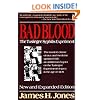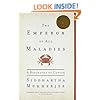




The Immortal Life of Henrietta Lacks Paperback – March 8, 2011
| Amazon Price | New from | Used from |
|
Mass Market Paperback
"Please retry"
|
—
|
— | $5.14 |
|
Audio CD, Audiobook, Unabridged
"Please retry"
|
$22.68 | $15.91 |
|
Unknown Binding
"Please retry"
|
—
|
$9.78 | $5.31 |

Don't have a Kindle? Get your Kindle here, or download a FREE Kindle Reading App.
Step right into Neil Patrick Harris's shoes in an exciting, interactive autobiography that places the reader squarely in the driver's seat. Learn more
Product Details
Would you like to update product info or give feedback on images?.
|
Editorial Reviews
Amazon.com Review
Amazon Exclusive: Jad Abumrad Reviews The Immortal Life of Henrietta Lacks
Jad Abumrad is host and creator of the public radio hit Radiolab, now in its seventh season and reaching over a million people monthly. Radiolab combines cutting-edge production with a philosophical approach to big ideas in science and beyond, and an inventive method of storytelling. Abumrad has won numerous awards, including a National Headliner Award in Radio and an American Association for the Advancement of Science (AAAS) Science Journalism Award. Read his exclusive Amazon guest review of The Immortal Life of Henrietta Lacks:

Honestly, I can't imagine a better tale.
A detective story that's at once mythically large and painfully intimate.
Just the simple facts are hard to believe: that in 1951, a poor black woman named Henrietta Lacks dies of cervical cancer, but pieces of the tumor that killed her--taken without her knowledge or consent--live on, first in one lab, then in hundreds, then thousands, then in giant factories churning out polio vaccines, then aboard rocket ships launched into space. The cells from this one tumor would spawn a multi-billion dollar industry and become a foundation of modern science--leading to breakthroughs in gene mapping, cloning and fertility and helping to discover how viruses work and how cancer develops (among a million other things). All of which is to say: the science end of this story is enough to blow one's mind right out of one's face.
But what's truly remarkable about Rebecca Skloot's book is that we also get the rest of the story, the part that could have easily remained hidden had she not spent ten years unearthing it: Who was Henrietta Lacks? How did she live? How she did die? Did her family know that she'd become, in some sense, immortal, and how did that affect them? These are crucial questions, because science should never forget the people who gave it life. And so, what unfolds is not only a reporting tour de force but also a very entertaining account of Henrietta, her ancestors, her cells and the scientists who grew them.
The book ultimately channels its journey of discovery though Henrietta's youngest daughter, Deborah, who never knew her mother, and who dreamt of one day being a scientist.
As Deborah Lacks and Skloot search for answers, we're bounced effortlessly from the tiny tobacco-farming Virginia hamlet of Henrietta's childhood to modern-day Baltimore, where Henrietta's family remains. Along the way, a series of unforgettable juxtapositions: cell culturing bumps into faith healings, cutting edge medicine collides with the dark truth that Henrietta's family can't afford the health insurance to care for diseases their mother's cells have helped to cure.
Rebecca Skloot tells the story with great sensitivity, urgency and, in the end, damn fine writing. I highly recommend this book. --Jad Abumrad
Look Inside The Immortal Life of Henrietta Lacks
Click on thumbnails for larger images
--This text refers to the Hardcover edition.
From Publishers Weekly
Copyright © Reed Business Information, a division of Reed Elsevier Inc. All rights reserved. --This text refers to the Hardcover edition.
More About the Author
The Immortal Life of Henrietta Lacks is being translated into more than twenty languages, and adapted into a young adult book, and an HBO film produced by Oprah Winfrey and Alan Ball. Skloot lives in Chicago but regularly abandons city life to write in the hills of West Virginia, where she tends to find stray animals and bring them home. She travels extensively to speak about her book. For more information, visit RebeccaSkloot.com, where you will find book special features, including photos and videos, as well as her book tour schedule, and links to follow her and The Immortal Life on Twitter and Facebook.
Related Media
Customer Reviews
Most Helpful Customer Reviews
1. The author clearly developed a strong relationship with the Lacks family, which was absolutely critical to ensuring the story was told accurately and with the respect to Henrietta Lacks that was so deeply deserved.
2. The storytelling is amazingly moving despite the need to convey a lot of scientific information. It reads like fiction.
3. Ms. Skloot's research into the science is impeccable.
4. The book is FAIR. It presents the unvarnished truth, obtained DIRECTLY from as many prinicpal people involved in the story as is humanly possible. It would have been easier to simplify the story into heroes vs. villians, but Ms. Skloot deftly handles all sides of the story.
For some detail: I have worked with HeLa cells in the past, but did not know even the barest information about the story of Henrietta Lacks until a few years ago. It simply was not common knowledge, until a few less ethical folks released her name and medical records to the public. This obviously should not have been done without the express permission of the Lacks family, which Ms. Skloot obtained. In the past, others have not been as ethical. The book covers Ms. Lacks' early life, how her cells came to be harvested, and what happened to both the cells and her family afterward.Read more ›
First of all I want to say I am STUNNED that this is the author's first book. She has poured ten years of her heart, soul, mind and her life in general in this book. What she has given birth to in that long period of labor is worthy of her sacrifice and honors Henrietta Lacks and her family.
Other reviews have given the outline of this amazing story. What I want to stress is that Ms. Skloot has navigated the difficult terrain of respecting Mrs. Lacks and her family, while still telling their story in a very intimate, thorough, factual manner. What readers may not know is that the Lacks family isn't just a "subject" that the author researched. This is a real family with real heartaches and real challenges whose lives she entered into for a very long season. The Lacks' family has truly benefitted from the author's involvement in their life and that is something I am very appreciative of. I believe that Ms. Skloot was able to give Henrietta's daughter, Deborah, a real sense of healing, deliverance, peace and identity that she had been searching for her whole life...that story alone would have made the book for me.
It would have been very easy for the author to come across as condescending or patronizing or possibly as being exploitive as she wrote about a family that is poor and uneducated.Read more ›
The one thing that I found fascinating about this book is how Skloot managed to take a generally dry topic that might have been addressed in a scientific textbook and humanized it on a very personal level by developing a close relationship with Henrietta's family. The input received from the family took this book to a higher level and made it a very personsl story. From my perspective, it was very hard not to get involved with the Lacks family and not feel their sense of betrayal and loss.




























